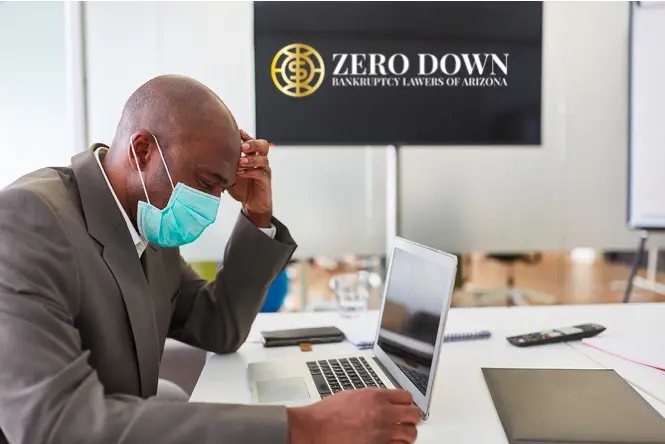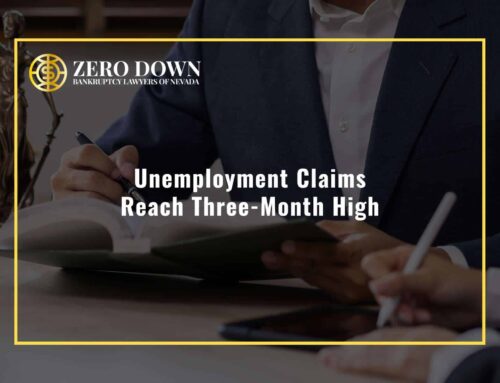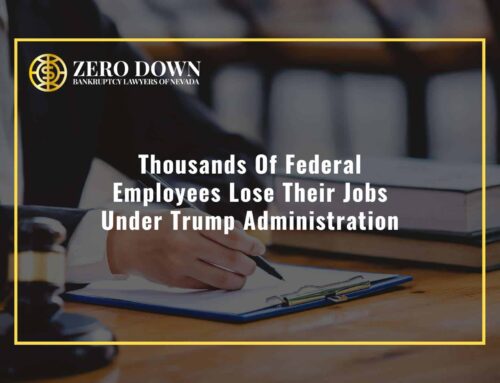Contact a Bankruptcy Attorney to Find Out Your Options
 Most Americans have experienced a change in their financial situation due to the coronavirus pandemic. People who are actually infected with the virus are especially likely to be struggling financially. NPR, the Harvard T.H. Chan School of Public Health, and the Robert Wood Johnson Foundation released results to a survey of American families on their health and financial problems due to the pandemic.
Most Americans have experienced a change in their financial situation due to the coronavirus pandemic. People who are actually infected with the virus are especially likely to be struggling financially. NPR, the Harvard T.H. Chan School of Public Health, and the Robert Wood Johnson Foundation released results to a survey of American families on their health and financial problems due to the pandemic.
The Coronavirus Impact Study
Researchers who conducted the study interviewed 3,454 American adults for the study. This study focused on adults in the four largest metropolitan areas in the United States- New York City, Los Angeles, Chicago, and Houston. They also administered a second survey, titled “The Impact of Coronavirus on Households, by Race/Ethnicity”
Across the four metropolitan areas, at least half of families are struggling with finances. Chicago is faring the best with approximately 50% of survey participants reporting financial problems. In New York, this number was 53%, 56% in Los Angeles, and 63% in Houston. Financial problems include paying medical bills, monthly expenses, and dipping into savings to make ends meet.
One group researchers noticed to be struggling was, unsurprisingly, households where one or more family members had lost their job during the onset of the pandemic. Families with a combined income of less than $100,000 per year are also reporting more financial struggles. Families of Latino, Black, and Native American heritage report higher levels of financial impact as well as using up their savings. About 20%, or 1 in 5, families have been unable to access necessary medical care during the pandemic, which has resulted in negative health consequences for about 57% of those individuals. Approximately 34% of families with minor children don’t have high speed internet access, which is vital to remote learning.
Those Who Have Contracted the Virus
The fact that families in which at least one member has been infected with COVID-19 are highly likely to face financial struggles comes as no surprise. An astonishing 63% of families who have had at least one member contract the virus are facing financial strain. This is compared to 46% of households where no members have contracted the virus.
Those who actually contract the coronavirus experience varying levels of symptoms. Some may experience symptoms similar in severity to the flu, while others may require hospitalization or succumb to the disease. All that test positive must self-quarantine for at least two weeks. This can mean necessary assistance with childcare, grocery shopping, errands, household chores, and more besides not being able to go to work. While treatment for coronavirus patients is no charge, there are plenty of coronavirus-related expenses that the government and health insurance don’t cover. Credit cards and personal loans are being used by affected families to fill the gaps. Those who experience the double whammy of contracting the virus and losing their job are even more likely to struggle financially.
What About the CARES Act?

Is Bankruptcy a Solution for Those Financially Impacted by the Coronavirus?
Especially for those who already had debt before the pandemic, contracting coronavirus and being laid off can be the perfect storm to financially ruin some. The good news is that there is help for people struggling with debt. Most personal bankruptcy filers choose between Chapter 7 and Chapter 13, which have different eligibility criteria and can help in different ways depending on the needs of the debtor.
For those who have incurred medical bills, credit card debts, and personal loans to keep food on the table while fighting the coronavirus, Chapter 7 may be a good option. It discharges unsecured, nonpriority debts for qualified filers in 4-6 months. Prolonged unemployment due to the pandemic may help a filer qualify for Chapter 7 income-wise, and debts incurred due to coronavirus will typically be dischargeable. However, the drawback is that once you file, you can’t file again for 8 years. You shouldn’t file Chapter 7 until you have stopped incurring new debt.
Chapter 13 bankruptcy is a 3-5 year debt reorganization payment plan. It is commonly used by those who are behind on car and vehicle payments for an asset they intend to keep. The past-due amount is spread out over the course of the payment plan in monthly installments while under protection from repossession by the Automatic Stay. This chapter can be useful for individuals who have fallen behind on mortgage payments and could face foreclosure when nationwide eviction moratoriums expire.
Contacting an Arizona Bankruptcy Attorney May Help
If you are struggling financially due to the coronavirus pandemic, call today for a consultation with one of our experienced bankruptcy attorneys. If bankruptcy is a good solution for your debt situation, our experts can help you determine which chapter to file, when, which exemptions to use on your property, and more. The initial consultation is free, and at no risk and no obligation to you. You may even qualify for our Zero Down monthly installment plan for Chapter 7 Bankruptcy! The only way to find out is by calling to schedule your free consultation!








